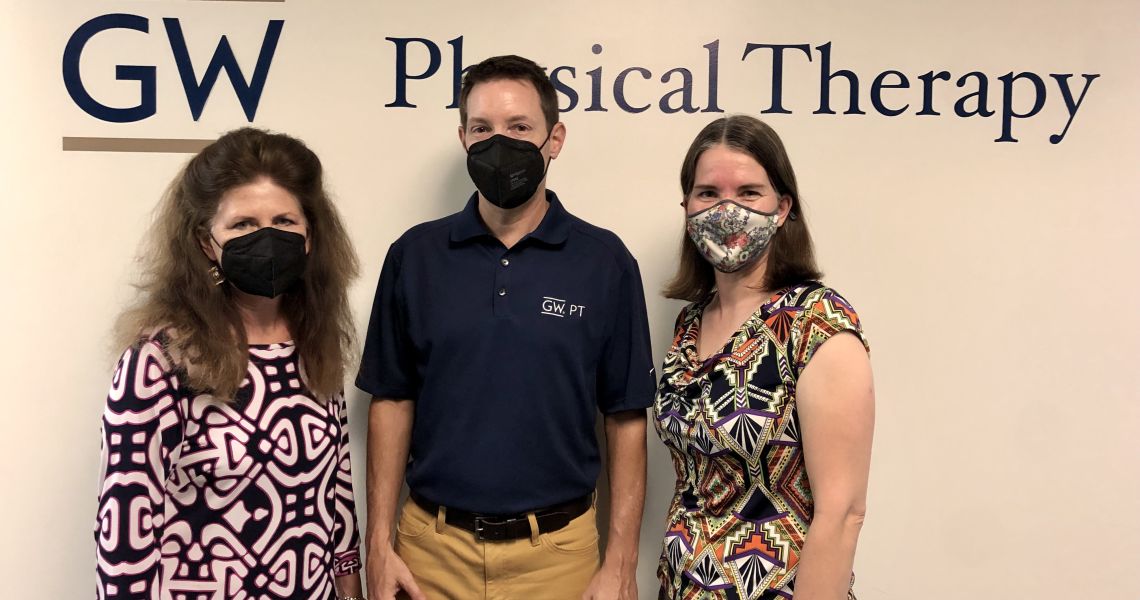Despite busy semesters and packed calendars, the George Washington University (GW) School of Medicine and Health Sciences (SMHS) Doctorate of Physical Therapy (DPT) faculty and staff are always up for new challenges. That’s why the answer was “yes” when Holly Jonely, ScD, associate director of GW’s DPT program, was asked by GW SMHS faculty members to write a chapter in the text, Handbook of Research on Advising and Developing the Pre-Health Professional Student, a guide to guidance counselors, career counselors, and mentors of pre-health professionals. The chapter, titled “The Profession of Physical Therapy: A Collaborative Effort of Physical Therapist (PT) and Physical Therapist Assistant (PTA),” showcases the profession of physical therapy, what students interested in pursuing the field might expect, and what kinds of educational support are available.
When embarking on the project, Jonely knew it was too daunting to take on alone, so she enlisted the support of current and former GW DPT colleagues Heather Richards, clinical education specialist; Miriam Okine-Davies, former assistant director, admissions and enrollment management; Ellen Costello, PhD, director of the GW DPT program; Matt Garber, ScD, MPT, assistant professor in the GW DPT program; and Cristina Fontanez Garrison, DPT instructor, PTA program at Howard Community College. Jonely felt it was beneficial to have multiple members of the team involved to bring their own distinct levels of expertise.
Richards pushed for the program’s involvement in writing the chapter and was responsible for much of the initial planning. “I’m big on holistic admission and the idea that no student or applicant is just the sum of their numbers,” said Okine-Davies “It’s important to be cognizant that there’s a whole person behind the scores, with insights that they've gleaned from academic experiences, work, and volunteer experiences.” She also emphasized the importance of the non-cognitive factors that can make applicants successful including things such as sports and extracurricular activities, which demonstrate work-life balance. “Academics are great,” Okine-Davies added, “but when an applicant can also articulate where they struggled and how they overcame those struggles, that’s where they’ll stand out.”
When asked why GW’s DPT program was specifically approached, Jonely felt it had to do with their reputation. “My bias would be our outcomes. We have a strong program. This project was an opportunity to showcase some of what GW is doing well,” she said. Jonely and her co-authors also used the chapter to encourage diverse individuals to pursue a career in physical therapy. The team hopes that the chapter will help counselors to spark interest and open doors for individuals who might not have considered the profession before. “We have a substantial core of knowledge and I’m grateful that we were able to articulate that,” said Jonely.
